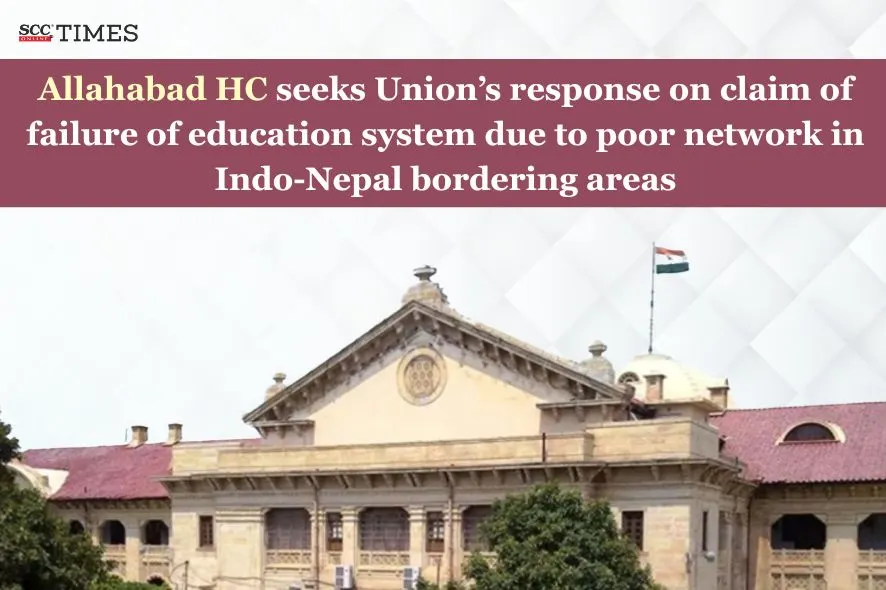Allahabad High Court: In an application filed seeking provision of proper telecom network in the Indo-Nepal border area of Chakujot, Bahraich, Uttar Pradesh, the Single Judge Bench of Pankaj Bhatia, J., noted that the network was extremely slow and directed the respondent authorities to file a comprehensive affidavit indicating the steps were being taken to improve the telecom network in the Indo-Nepal bordering areas, the research carried out regarding the proper functioning of the network, and the proposed corrective measures for improving connectivity.
Background
The petitioner was the Director of a post-graduate college situated in Village Chakujot, District Bahraich, Uttar Pradesh. The College also included a residential facility where many students live; however, due to the non-availability of a proper network, their education was seriously affected. The petitioner contended that it was common knowledge that in the districts bordering Nepal, the network provided by the Nepalese Government was often used, and it was a better network than the one provided by the Indian Government.
The petitioner further contended that the issue of non-accessibility of the internet was not only a violation of the right to education, but also a security threat, as the residents in the bordering areas commonly used the Nepalese network for communication more than the network available on the Indian side. Aggrieved, he filed an impleadment application in the present petition claiming that the lack of network might result in the forced shutdown of the College.
Respondent 2 submitted a report that indicated that the mobile services at District Bahraich show a download speed of 8.55 Mbps and an upload speed of 1.37 Mbps. The report further stated that all Telecom Service Providers (‘TSP’) had completed the minimum rollout obligation for 2G and 4G mobile services in the UP East License Service Area (LSA) that includes District-Bahraich. After completing the minimum rollout obligation, expansion of mobile services beyond these obligations depended on the techno-commercial considerations of the TSPs.
Analysis
The Court noted that the said report indicated that the network was extremely slow. Noting this, the Court stated that the petitioner’s contention that the entire educational system was failing due to the slow network appeared to have merit. The report submitted by respondent 2 could not be deemed satisfactory.
Accordingly, the Court directed the respondent authorities to file a comprehensive affidavit indicating what steps were being taken to improve the telecom network in the Indo-Nepal bordering areas, including District Bahraich. The affidavit shall also specifically indicate what research has been carried out regarding the proper functioning of the network in the bordering areas and what corrective measures were proposed for improving connectivity. The Court further directed that the affidavit shall be filed by an officer at the level of Secretary, Department of Telecommunications, within three weeks, and no further time shall be granted.
The matter was listed for 08-10-2025.
Given the concerns highlighted herein, the Court requested Advocate Syed Mohd. Haider Rizv to act and assist as amicus curiae.
[Sushant Chandra Jaiswal v. Union of India, 2025 SCC OnLine All 5799, decided on 08-09-2025]
Advocates who appeared in this case:
For the petitioner: Rajan Singh
For the respondents: A.S.G.I., C.S.C.


